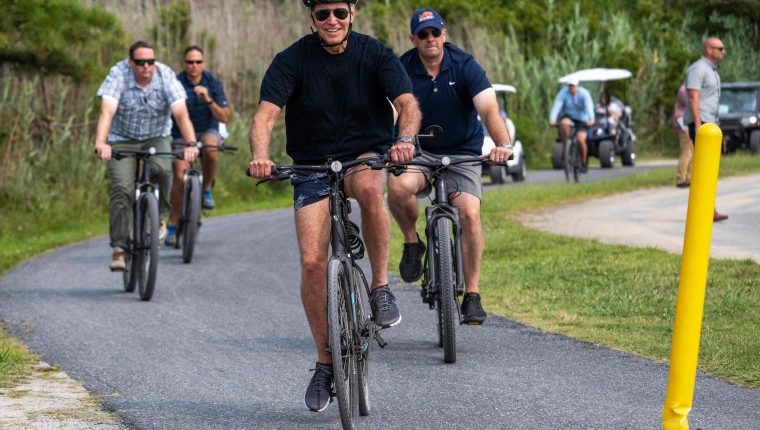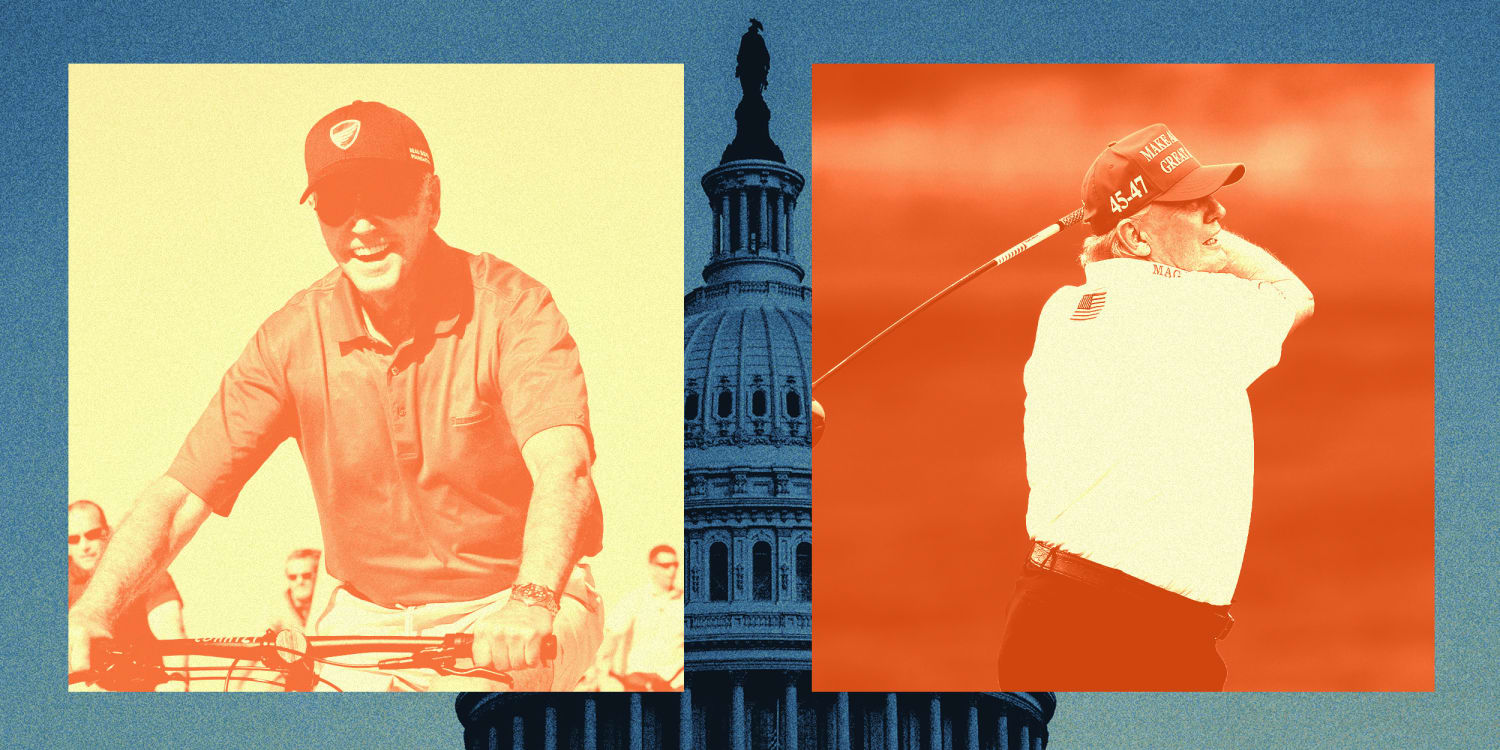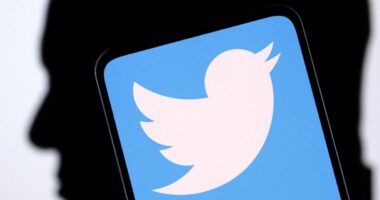KENNEBUNKPORT, Maine — Former President George H.W. Bush said he and his family would come to their seaside summer home here to “refurbish our souls” and “get our batteries all charged up” before plunging back into politics in the fall.
August has long marked a season of calm in Washington, when Congress goes on recess and the president takes a vacation. Labor Day weekend has long been seen as the kickoff to campaign season after a much-needed summer break for candidates and voters alike. But politics never seems to stop in our divided and smartphone-addicted nation.
August’s heat is now political.
“When I was working on the Hill from the 1970s until the early 2000s, there was a certain sacrosanct inviolability to August on both sides,” said John Lawrence, former House Speaker Nancy Pelosi’s longtime chief of staff. “The politicians didn’t want to deal with most of the issues that came up, and most Americans didn’t want to be bothered. So it was a sort of happy arrangement.”
By tradition, business would largely halt for what Thomas Jefferson dubbed the “sickly months” of late summer in a capital city supposedly (but not actually) built on a swamp. “No good legislation ever comes out of Washington after June,” quipped Franklin Delano Roosevelt’s vice president John Nance Garner.
And the August of an off-off year like this one — when there’s neither a presidential nor a midterm election in the fall — should have been as quiet as politics gets. But even the quiet moments of American politics these days can be cacophonous.
“There’s no such thing as political downtime anymore,” said Lawrence.
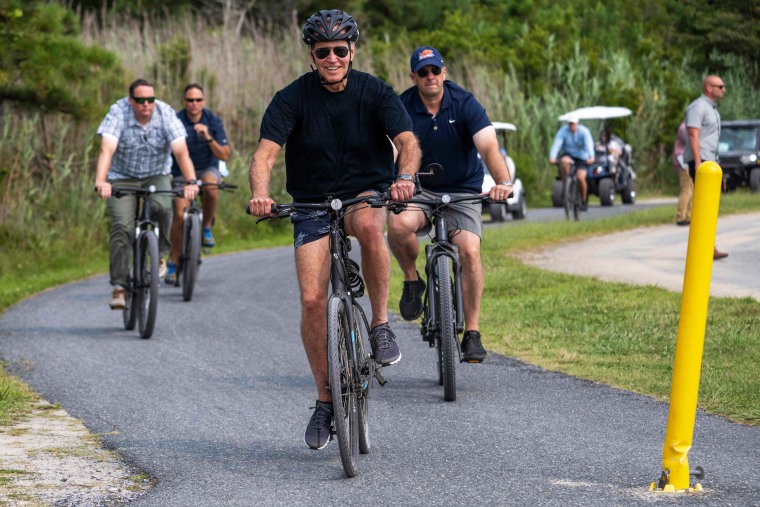
President Joe Biden has had business interrupt his August vacation every year since he’s been in office. This year, it was the Maui wildfires. Last year it was the Inflation Reduction Act, and the year before that it was the messy U.S. pullout from Afghanistan.
This August also saw the indictment and arrest of a former president (twice), a racially charged mass shooting, a racially charged brawl near a Mississippi riverboat, an active shooter scare at the U.S. Capitol, a police raid on a small-town newspaper amid a national debate on press freedom, the ongoing Hollywood actor and writer strike and the first GOP presidential debate of the 2024 election.
“It used to be that even the most addled political junkies got to dry out in August,” said Liam Donovan, a lobbyist and former GOP campaign operative. “But between the new season of Law & Order: MAGA and Trump’s would-be challengers desperate to gain traction via the debate stage, this year offers even less of a respite than usual.”
Between the new season of Law & Order: MAGA and Trump’s would-be challengers desperate to gain traction via the debate stage, this year offers even less of a respite than usual.
Liam Donovan Lobbyist, former GOP operative
Even ordinary voters can no longer expect any summer respite from politics, as Liam Lucas, a Jeep enthusiast who runs the 4x4ing website Off Road Genius, discovered during a trek on the Pacific Crest Trail in the remote Sierra Nevada Mountains.
“I was using a smartphone with sporadic reception for emergencies, and I started receiving a barrage of push notifications from news apps,” he said. “It was fascinating to witness how geopolitical events thousands of miles away could puncture the tranquility of the wilderness.”
Those who can still vacate Washington. But in the age of remote work and ubiquitous Wi-Fi, politicos and the people who cover them are never truly out of touch.
“Back in the day, if news broke in August, one could hardly find a politician to interview,” said Debra Caruso Marrone, a former journalist who now runs a Manhattan PR firm and sits on the board of governors of the New York Press Club. “Now they’re available and reachable by cell, even if they’re at a remote location.”
So ingrained was the no politics until Labor Day norm that Sen. Barry Goldwater took a full month off before starting his presidential campaign after receiving the 1964 Republican nomination.
A decade later, despite the raging Watergate scandal, then-Chief Justice William Burger felt comfortable leaving Washington in August for an overseas trip. But when President Richard Nixon unexpectedly resigned on Aug. 8, Burger had to be tracked down in the Netherlands and flown back overnight so he could administer the oath of office to incoming President Gerald Ford the next day.
Even during the Civil War, Washington’s oppressive humidity ensured Abraham Lincoln “never sleeps at the White House during the hot season,” wrote famed poet Walt Whitman, who saw the president “almost every single day as I happen to live where he passes to or from his lodgings out of town.”
After Lincoln’s wife and children joined the seasonal exodus out of Washington one summer, presidential aide John Hay complained to a colleague, “This town is as dismal now as a defaced tombstone. Everybody has gone.”
It’s not just the heat. The U.S. Capitol Building got a then-cutting edge “manufactured weather” system in 1929, and the White House got its own air conditioning not long after.
Climate control allowed congressional business to stretch into the summer, but many lawmakers complained they were losing time with their families and constituents. And they saw a larger danger to democracy in perpetual political warfare.
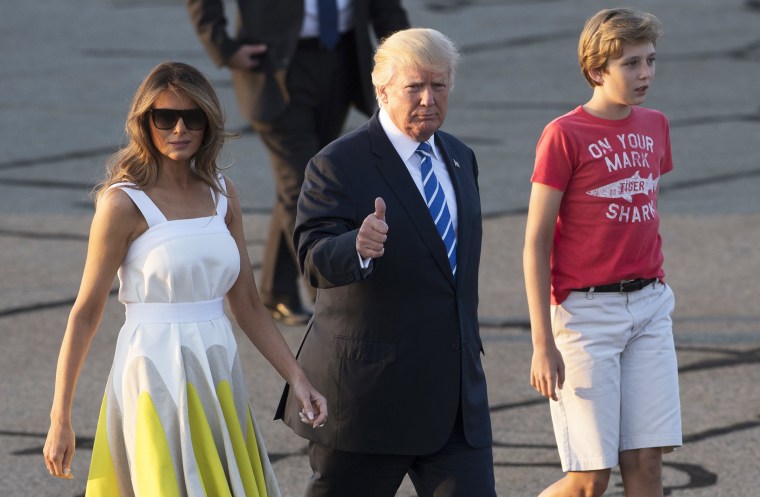
“Year after year we see sessions going into August, September or October, and we see tempers frayed, mental fatigue and exhaustion and minds on such matters as election campaigns,” Margaret Chase Smith, the Maine senator who was the first woman to serve in both the House and Senate, said in 1961.
Smith had been pushing for a change in congressional rules that would mandate a break in August so as to avoid legislating “under conditions that are not conducive for clear minds and stable emotions.”
The effort succeeded and senators and secretaries alike enjoyed the respite of Congress’ August recess for decades.
Dennis DeConcini, a former Democratic senator from Arizona who served from the late 1970s to the mid-’90s, recalled August as a quiet time in which he would regularly gather up his family and take them on a two-week trip to Europe after some light constituent work.
“You’d spend four days in Phoenix making some speeches and then you’d take off,” he said.
Of course, presidents never really got true vacations, especially after the emergence of the Cold War imperative to be ready to fight a nuclear war anywhere at any moment. “They’ve got the technology, so no matter where a president goes, work will follow,” said Sarah Fling, a historian with the White House Historical Association.
Most Americans will never need to command a nuclear war, but nearly all now travel with the kind of communications technology that was once reserved for commanders in chief.
At least 85% of Americans own a smartphone, and 60% say they use it to get news “often,” while the portion of Americans who say they follow national political news “very closely” has been growing in the 21st century.
Meanwhile, “clear minds and stable emotions” may no longer be as prized as they once were in Washington as campaign season increasingly bleeds into what is nominally governing season.
These days, Congress almost never completes the budget on time, so August is often just a prelude to a government shutdown ahead of the Sept. 30 end of the fiscal year deadline.
And smartphones also mean politicians can never really relax in public, even on vacation. “You’re constantly going to be on guard that there’s going to be somebody there with an iPhone and a hostile question,” said Lawrence. “You have to be aware that there are people there to stoke controversy and someone will film.”
Critics of the August holiday might note that the nation’s problems don’t take the summer off, so neither should politicians.
Bush learned that during a visit to Kennebunkport after the outbreak of the Gulf War in 1990.
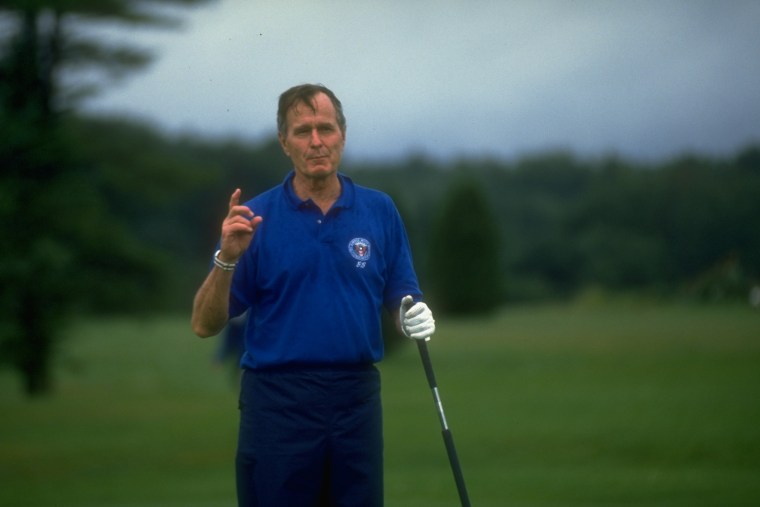
‘’I just don’t like taking questions on serious matters on my vacation,’’ Bush told reporters on the 18th hole of the golf course in a moment that quickly became infamous. ‘’When I’m recreating, [I[ will recreate. And then when we’re working, which I’m trying to do up here also, I’ll work hard.’’
That did not sit well with the wife of an American oilfield worker who was at that moment being held captive in Iraq. “My husband’s not on vacation. My husband is not having recreation time,” Margie Walterscheid told reporters.
Here’s the thing: The more we try to find comfort in the news, the more we get hooked on it, like something we can’t quit.
Avigail Lev, CLINICAL PSYCHOLOGIST
Still, Avigail Lev, a clinical psychologist and author in San Francisco, said Americans need to be able to take a break from politics — for their own personal health and that of the nation.
“It’s as if we’re living in a place where trust and understanding are just out of reach. And the more we see this split and confusion, the more we turn to the news to make sense of it all,” she said. “Here’s the thing: The more we try to find comfort in the news, the more we get hooked on it, like something we can’t quit.”
Source: | This article originally belongs to Nbcnews.com
